#studyguide
Text

Saturday, February 17, 2024
Bon Appetit by Solmarie L
#art#memes#aesthetic#law of assumption#manifestation#affirmations#anatomy#girlblogging#high school#studyguide#artists on tumblr#digital art#digital illustration#painting#foryou#studyblr#french#taylor swift
2 notes
·
View notes
Text
1st Block - Read Chapters 4 & 5
2nd Block- Read Chapters 6 & 7
3rd Block- Read Chapters 7 & 8
3 notes
·
View notes
Text
(18.05.22)
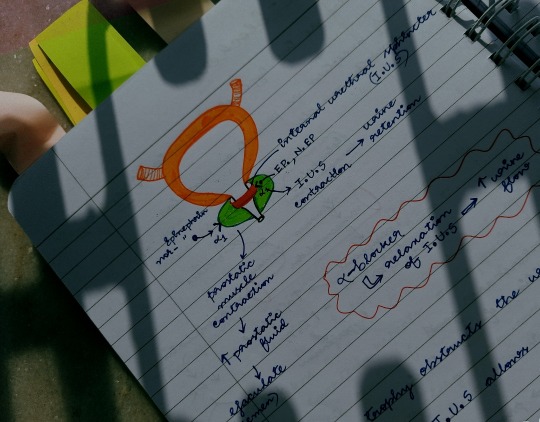
To do :
Yoga at 7:30am
Protein shake
Study - Forensic Medicine
A short revision of previously done age estimation based on skiagrams✅️
Finish short notes from question paper (not done)
Attend Forensic Medicine offline class at college at 11am✅️
Revise and rewrite notes taken at college and the chapter that was taught✅️
Watch a 55min video on 'Immune Response' (partially done)
Solve 40 marks paper on 'Immune Response ' (not done)
Go out to play cricket at 5:30pm
Dinner by 9pm
Extra :
- In the evening, I was feeling very tired and my hands were hurting. And honestly I was distracted today.
- At round 9pm I was really feeling very sleepy. Somehow I forced myself to watch the video on "Immune Response" and take notes. At the end, I dozed off for some 15 mins, after which I decided I should stop for today.
- Overall, today was not a very great day. Honestly I am a little upset and I am going to consider this a faliure.
But , I am not a quitter.
#studyblr#bullet journal#study motivation#study space#studyspo#productivity#study aesthetic#study blog#study moodboard#study notes#study hard#studying#student#college student#college studyblr#studyblr community#a levels#studyguide#being productive#productive#med school#med studyblr#medblr#med student#indian studyblr#study inspiration#new studyblr#stem student#study inspo#studyspiration
11 notes
·
View notes
Text
https://indiatechmitra.com/mp-forest-guard-syllabus/
Gear up for success with the 'MP Forest Guard Syllabus 2024 – Exam Pattern & Marking Scheme' guide on indiatechmitra.com. This in-depth article is your essential resource for mastering the Madhya Pradesh Forest Guard exam, offering a detailed breakdown of the syllabus, updated exam pattern, and comprehensive marking scheme for the 2024 recruitment cycle. From key topics in General Knowledge, Mathematics, Science, to General English and Hindi, we cover every aspect to ensure your preparation is thorough and on point. Additionally, get insights into the exam's structure, including the number of questions, types of questions, duration, and strategies for maximizing your score. Perfect for candidates aiming to secure their position in the MP Forest Department, this guide empowers you with the knowledge to plan your study schedule effectively and approach the exam with confidence. #MPForestGuard #ExamSyllabus2024 #ExamPreparation #GovernmentJobs #MadhyaPradesh #ForestDepartment #CareerOpportunities #StudyGuide #Indiatechmitra
#MPForestGuard#ExamSyllabus2024#ExamPreparation#GovernmentJobs#MadhyaPradesh#ForestDepartment#CareerOpportunities#StudyGuide#Indiatechmitra
0 notes
Text




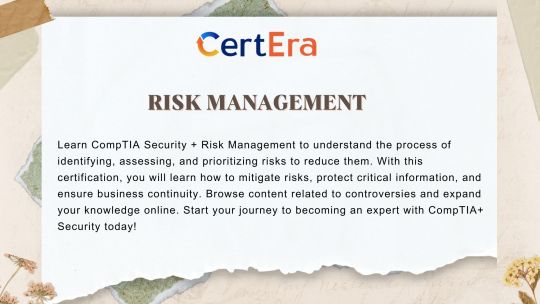




"Boost your CompTIA Security+ exam readiness: practice exams, review objectives, hands-on labs, and stay updated with latest cybersecurity trends.
For more information visit www.certera.co
#CompTIASecurity#SecurityPlus#Cybersecurity#ITCertification#ExamPrep#StudyTips#InfoSec#NetworkSecurity#CyberSec#TechSkills#CertificationPrep#ITCareer#StudyGuide#SecPlus#ITSecurity#CompTIAExam#CertificationExam#SecurityCertification#TestPrep#CyberAware#InfoSecTraining#SecurityCareer#SecurityProfessional#StudySmart#CompTIATraining#CyberDefense#ExamTips#CyberSecurityTraining
0 notes
Text
Critical Appraisal of Research for Evidence-Based Practice
Like a skilled detective uncovering the truth, you hold the power to critically appraise research for evidence-based practice. By evaluating study design, validity, reliability, sample size, and relevance, you can confidently separate fact from fiction.
In this article, we will guide you through the steps of this crucial process, empowering you to incorporate critical appraisal into your practice. Get ready to become a champion of evidence-based decision-making!
Key Takeaways
- Critical appraisal is important in evidence-based practice to prioritize research and identify bias and limitations.
- The critical appraisal process involves identifying the research question, evaluating study design and methodology, assessing biases and limitations, considering implications for practice, and determining applicability to the patient population.
- Evaluating study design and methodology involves assessing the quality of research, identifying potential sources of bias, and considering limitations such as sample size or lack of a control group.
- Assessing the validity and reliability of research findings involves examining the accuracy and consistency of results, evaluating bias, assessing internal validity, and considering the generalizability of the findings.
Importance of Critical Appraisal
You should prioritize critically appraising research when engaging in evidence-based practice. This is because critically appraising research helps you to identify and understand the importance of bias and limitations in research.
Bias refers to any factors that may influence the results of a study in a systematic way, leading to inaccurate or misleading conclusions. By critically appraising research, you can assess the presence and impact of bias, such as selection bias, measurement bias, or publication bias. This allows you to determine the validity and reliability of the findings, and make informed decisions about their applicability to your own practice.
In addition, critically appraising research helps you to recognize the limitations in research. Every study has its own limitations, such as small sample size, lack of generalizability, or potential confounding variables. By understanding these limitations, you can better interpret and contextualize the findings, and avoid making unsupported or inappropriate conclusions.
Furthermore, critically appraising research allows you to identify gaps in the current literature, which can guide future research and contribute to the advancement of evidence-based practice.
Steps in Critical Appraisal Process
To begin the critical appraisal process, it's essential to familiarize yourself with the steps involved in evaluating research for evidence-based practice.
The first step is to identify the research question or objective of the study. This helps in determining the relevance of the research to your practice.
Next, you need to evaluate the study design and methodology. This involves assessing the quality of the research by considering factors such as sample size, data collection methods, and statistical analysis. It's important to critically appraise the research for any potential biases that may have influenced the results.
Evaluating bias involves examining factors like funding sources, conflicts of interest, and researcher's affiliations. Additionally, you need to assess the quality and validity of the research findings. This includes considering factors such as the use of appropriate outcome measures, statistical significance, and generalizability of the results.
Lastly, it's crucial to consider the implications of the research findings for your practice and to determine whether the findings can be applied to your patient population.
Evaluating Study Design and Methodology
Evaluate the study design and methodology to assess the quality of the research for evidence-based practice. When evaluating a study, it is important to consider the potential for bias and the limitations of the research. Bias can occur at various stages of the study, including during the selection of participants, data collection, and data analysis. It is essential to critically examine the study design and methodology to identify any potential sources of bias.
To help in evaluating bias and identifying limitations, consider the following table:
Aspect to Consider
Potential Bias
Limitations
Participant Selection
Sampling bias
Small sample size
Data Collection
Observer bias
Self-reporting bias
Data Analysis
Confirmation bias
Lack of control group
By analyzing the study design and methodology, you can determine the extent to which bias may have influenced the results. Additionally, identifying any limitations in the research can help you understand the scope and generalizability of the findings.
Remember that evaluating the study design and methodology is crucial in determining the quality and reliability of the research for evidence-based practice. By doing so, you can ensure that the evidence you incorporate into your practice is valid and applicable.
Assessing Validity and Reliability of Research Findings
Assessing the validity and reliability of research findings involves examining the accuracy and consistency of the study's results. One important aspect of assessing validity is evaluating the presence of bias in the research. Bias can occur when there's a systematic error in the design, conduct, or analysis of the study that leads to a distortion of the results. It's important to assess bias because it can affect the internal validity of the study, making it difficult to draw accurate conclusions. Common sources of bias include selection bias, information bias, and confounding bias. By critically examining the study's methods and procedures, you can identify potential biases and determine their impact on the research findings.
Another aspect of assessing validity is considering the generalizability of the research findings. Generalizability refers to the extent to which the results can be applied to populations or settings beyond the study sample. To assess generalizability, you need to consider the characteristics of the study population and determine if it's representative of the target population of interest. Additionally, you should examine the study's inclusion and exclusion criteria, as well as any potential limitations that may affect the generalizability of the findings.
Considerations for Sample Size and Statistical Analysis
When considering sample size and statistical analysis in your research, it's important to recognize the significance of sample size.
A larger sample size generally yields more reliable and accurate results, increasing the validity of your statistical analysis.
Sample Size Importance
To understand the significance of sample size in research, you must consider the article's determiner, active voice, and contractions.
The importance of power and generalizability concerns are crucial when determining the appropriate sample size for a study. Power refers to the ability of a study to detect a true effect if it exists. A larger sample size increases the study's power, making it more likely to detect significant findings. On the other hand, if the sample size is too small, the study may lack the power to detect even a substantial effect.
Generalizability concerns arise when researchers aim to apply their findings to a larger population. A larger sample size increases the likelihood of obtaining results that can be generalized to a broader population. With a sufficient sample size, the research findings can be more confidently applied to the target population.
Understanding the importance of sample size is essential to ensure valid and reliable research findings. Moving forward, it's important to examine the validity of statistical analysis to further evaluate the research's credibility.
Validity of Statistical Analysis
You should evaluate the validity of the statistical analysis by considering the sample size and statistical methods used. When assessing the statistical analysis in a research study, it's important to be aware of the limitations and potential biases that may arise. Here are some key points to consider:
- Sample size: A small sample size can lead to unreliable results and reduced generalizability. Conversely, a large sample size increases the statistical power and enhances the reliability of the findings.
- Statistical methods: The choice of statistical methods should be appropriate for the research question and data type. Inappropriate or flawed statistical techniques can introduce bias and distort the results.
- Limitations of statistical analysis: It's crucial to acknowledge the limitations of statistical analysis, such as assumptions made, potential confounders, and the scope and applicability of the results.
- Potential bias in statistical analysis: Researchers should be cautious of biases that can arise during statistical analysis, such as selection bias, measurement bias, and publication bias.
Appraising the Relevance and Applicability to Practice
Assessing the relevance and applicability of research to your practice is a crucial step in the critical appraisal process. When evaluating the relevance of a study, you must consider its applicability to clinical settings and the practical implications it may have on your practice.
Firstly, relevance to clinical settings refers to how well the research aligns with the specific context of your practice. Consider the population, interventions, and outcomes studied in the research. Are they similar to the patients you encounter? Does the study address a problem or question that's relevant to your practice? By answering these questions, you can determine if the research findings can be applied to your specific clinical setting.
Secondly, practical implications are essential when assessing the applicability of research to your practice. Consider how the research findings can be practically implemented in your daily practice. Will it require changes in protocols or interventions? Can the findings be integrated into existing workflows? Understanding the practical implications of the research will help you determine if it can be effectively applied to your practice.
Incorporating Critical Appraisal Into Evidence-Based Practice
Incorporating critical appraisal into evidence-based practice requires careful evaluation of research studies to ensure their validity and reliability. It's essential to integrate critical appraisal into healthcare to make informed clinical decisions.
By following these steps, you can effectively integrate critical appraisal into your practice:
- Understand the research question: Clearly identify the question being addressed in the study and determine its relevance to your clinical practice.
- Evaluate study design: Assess the methodology used in the study and consider its strengths and limitations. This step helps determine the quality of evidence provided.
- Assess data collection and analysis: Examine how data was collected and analyzed to ensure accuracy and reliability. Look for any potential biases that may affect the study's findings.
- Consider the study's implications: Reflect on how the study's results can be applied to your clinical decision-making process. Consider the study's relevance to your patients and their specific needs.
Frequently Asked Questions
What Are the Potential Biases That Can Affect the Results of a Research Study?
When evaluating a research study, it's important to consider the potential biases that can impact the results. Various sources of bias, such as selection bias, measurement bias, and publication bias, can distort the findings and compromise the study's validity.
These biases can arise from factors like biased sampling methods, inaccurate data collection, or selective publishing of results. Being aware of these potential biases is essential for critically appraising research and ensuring evidence-based practice.
How Can the Credibility of the Authors and Their Affiliations Impact the Reliability of the Research Findings?
The credibility of authors and their affiliations can greatly impact the reliability of research findings. When evaluating a study, you should consider if the authors have the necessary expertise and qualifications in the field.
Additionally, their affiliations may reveal potential conflicts of interest that could bias the results. It's important to critically assess the credibility and objectivity of the authors and their affiliations to ensure the research findings are reliable and trustworthy.
What Are the Limitations of Using Statistical Analysis to Interpret Research Findings?
When considering the limitations of statistical analysis in interpreting research findings, it's important to acknowledge that it's not a foolproof method. Statistical analysis can be influenced by various factors, leading to potential biases in research findings.
These limitations include sample size and selection, assumptions made during analysis, and the presence of confounding variables.
It's crucial to critically appraise research and consider these limitations to ensure the reliability and validity of the findings before applying them to evidence-based practice.
How Can Conflicting Evidence From Different Studies Be Reconciled in the Process of Critical Appraisal?
When faced with conflicting evidence from different studies, you can use various strategies for reconciliation.
First, carefully examine the methodology and sample size of each study to identify any potential biases or limitations.
Then, compare the key findings and conclusions of each study, looking for commonalities and differences.
Consider the overall quality and rigor of the research, as well as the context and applicability to your specific situation.
What Are the Ethical Considerations That Should Be Taken Into Account When Evaluating Research for Evidence-Based Practice?
When evaluating research for evidence-based practice, it's important to consider the ethical implications. Ethical considerations play a crucial role in determining the validity and reliability of the research.
You need to examine if the study followed ethical guidelines and if the participants' rights were protected. It's essential to ensure that the research was conducted in an ethical manner, with informed consent, confidentiality, and proper treatment of participants.
Conclusion
You are now equipped with the power to critically appraise research and make evidence-based decisions. Like a skilled detective, you'll carefully evaluate study design, validity, and reliability. With every step, you'll uncover the truth hidden within the data.
Armed with this knowledge, you can confidently apply research findings to your practice, ensuring the best outcomes for your patients.
Embrace the journey of evidence-based practice and let it guide you towards excellence.
Read the full article
#appraisaltool#appraisedtopic#checklist#dental#dentist#evaluationtable#hierarchy#hierarchyof#intervention#NursingResearch#QualitativeinNursing#QualitativeResearch#studyguide
0 notes
Text
Study Guides
It becomes a difficult effort for pupils to absorb and comprehend the concepts in one sitting as competition rises. Teachers put in a lot of effort to keep pupils' attention on what they are teaching. They go into detail and cover every significant aspect of a certain chapter. However, some students may not comprehend difficult concepts during class lectures. They seek assistance from study materials such as study guides and Wikipedia to achieve the best results.
The Internet unquestionably serves as a student's second teacher. Any pupil can use the Internet for assistance if they missed something crucial or had trouble understanding the theoretical or practical portion of the chapter. Today, there are several solutions available that can assist students in a variety of ways, and "study guides" are one of them. It not only clears the doubts of learners but also helps them get thoroughly prepared for their exams or tests. Through this blog post, children can find out about the best online study guides that help them with their homework, test preparation, notes, and much more.
What is a study guide?
A study guide refers to a book carrying key ideas and concepts to facilitate the learning and understanding of individuals. It condenses all topics into a single source of information. In simple words, it is a personalized collection of critical content displayed concisely and clearly that helps students study multiple topics at once. The main purpose of study guides is to help learners summarise and synthesize the information
The Role of Educational Guides
"Educational guides" or "study guides" enable students not only to remember information for longer but also to reap all the benefits while studying for a while. It plays a major role in a student’s life as it deepens their understanding of a particular topic.
The following points depict the significance of study guides in managing children’s learning.
It alleviates the stress of students by providing them with easy-to-understand notes.
It helps learners cover up the lengthy curriculum so they can easily prepare for their exams.
While juggling homework, pupils can get help from educational guides as they set up an entire schedule to help them connect the main ideas and prioritize information.
Moreover, it is useful for complex or difficult content or subject areas.
The Pros and Cons of Instructional Materials
As much as educational sites are extremely helpful, they also harm a student’s learning process. Let’s review the pros and cons of using these resources.
Pros
Study sites provide learners with access to class notes, homework problems, and resources for old tests.
It makes children independent as they find solutions to their problems on their own.
With the help of study guides, individuals can increase their knowledge and comprehension skills.
One of the primary advantages is organizing information to demonstrate the learner’s knowledge at the critical thinking level.
Apart from that, it gives everyone in the class the same opportunity to crack exams or tests.
Cons
It reduces the creativity and thinking skills of children because they prefer to use reference guides to complete their schoolwork.
Study guides increase the risk of copyright infringement by forcing students to copy other students’ work.
No doubt, educational forums limit the learning capabilities of pupils, which eventually results in ruining students’ academic careers.
Adding instructional materials to the course can create misconceptions if the information is not accurate.
To get a daily booster, please visit Daily Booster Article| study24hr.com
The best online study guides for students
As the demand for online education grows, more students are drawn to eLearning portals. Here are some of the well-known online study sites that spawned access to materials in the educational field.
1. CliffsNotes
"CliffNotes" is an incredible site that provides a series of student study guides. It is best known for its annotated notes, book summaries, test preparation, and literature work. Through CliffNotes, students can understand biology and math, as well as more advanced topics like statistics and organic chemistry. From accountancy to linear algebra and foreign languages to writing, pupils can ease their homework headaches and score high in exams. Furthermore, CliffNotes study guides are prepared by real educational experts and professionals.
2. SparkNotes
"SparkNotes" is one of the most useful study guides related to math, literature, science, economics, and more. The site aims to help students with confusing schoolwork by providing them with effective text- and video-based guides. It allows children to access blogs, books, quizzes, and flashcards to master complex issues.
3. Study24hr
Another student-oriented site is “study24hr.com”, which gives students a vast number of facilities. “Study24hr.com” is an eLearning platform that aims to enhance students’ academic performance and comprehension skills. It provides mock test papers, promotional videos, academic notes, quizzes, and daily boosters that help learners clear their doubts and boost their academic success.
4. Shmoop
The "Shmoop" plot provides the most helpful study tools that feature in literature, poetry, math, mythology, historical texts, and many more. It is a reliable source containing Ph.D. and master's-level teachers. Additionally, Shmoop's learning solutions are rigorous to increase student engagement.
5. Evernote
This interactive forum allows individuals to get fully transcribed notes by capturing audio, images, text, and videos. It allows learners to bookmark various sections so they can easily access them in the future. It is indeed a powerful tool that brings to-dos, schedules, and notes together to accomplish targeted goals.
The Bottom Line
Nevertheless, educational guides help students in multiple ways, but the constant use of these guides makes learners less interactive and ignorant. The more they utilize study guides, the less their intellectual skills will become. Therefore, it is requested to maintain a proper schedule for using educational forums. If students feel doubtful or stressed about particular topics, then only allow them to use study guides to sort out their problems. Otherwise, don’t make it a habit for them to copy-paste everything. This will not only deteriorate their skills but also ruin their academic development.
#academics#education#studyguide#study24hr#study#intellectualskills#students#goals#notes#lecture#problems#learners#interaction#online education#learning#development#mocktest#exams#preparation
0 notes
Text

Let's make studying easier together! 🌟 We're not just your study partner; we're your guide to making every study session count. Check out our Tumblr for easy tips, quotes, and friends who get why smart work is important. 📚✨
#StudySmart#bettergrader#assignments#assignmenthelp#assignmentwriting#SuccessJourney#StudyBuddy#LearningTogether#StudyTips#StudentSuccess#SmartWork#StudyMotivation#StudentLife#StudyCommunity#SmartStudy#StudyGuide#StudyInspiration#StudyIdeas
0 notes
Text
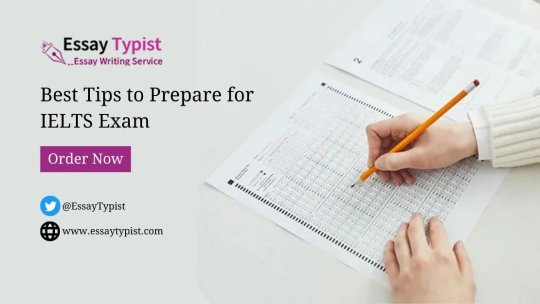
#essay help#essaywritingservices#ieltsexampreparation#studenthelp#studyguide#helpguide#study tips for exams#tips and tricks
0 notes
Text
Matlab Homework Help
Introducing our exceptional sample work done by our professionals at MatlabAssignmentExperts.com! 🔬📊🖥️
🔹 Need help with Matlab homework? Look no further! We provide top-notch Matlab Homework Help tailored to your specific needs. 💡
🔹 Our team of experienced experts has delivered outstanding results in various domains, ranging from image processing to data analysis. 🌐
🔹 Witness the power of our expertise through these captivating samples showcasing our skillful solutions. 🎯
🔹 Get a glimpse of our problem-solving prowess and see how we can assist you in conquering any Matlab challenge. 💪
🔹 Visit our website to explore the wide array of services we offer, and let us guide you to academic success in Matlab. 📚✅
🔹 Don't let Matlab homework overwhelm you! Trust MatlabAssignmentExperts.com for reliable assistance. 🤝
🔹 Follow us for more intriguing updates, valuable insights, and exclusive offers. Join the Matlab Homework Help revolution today! 💻🌟
🔸 Email: [email protected]
🔸 WhatsApp: +1(315)557-6473
🔸 Twitter: @ExpertsMatlab
🔸 Instagram: @matlabassignmentexperts






#matlabhomeworkhelp#do my homework#domymatlabhomework#university#academicsolution#professionalhelp#studytips#studyguide#studentshelp
0 notes
Text
Pass Your IT Exams in Half The Time | Hotcerts.com
Hotcerts provides a comprehensive platform for IT professionals looking to gain new skills and advance their careers in the IT industry. Whether you're just starting or looking to take your career to the next level, Hotcerts offers a range of certifications to help you achieve your goals.
#study#exam#guide#pass#professionals#certifications#career#download#designing#test#studyguide#examination#IT#informationtechnology#marketing#Cisco#CiscoMeraki#ITcertification#examprep#tech#CloudCollaboration#security#automation#network#infrastructures#engineers#architecture
1 note
·
View note
Text
Recap 21 days with Jesus!!!
Day 2 :)
Our Lord is amazing in Him we are made righteousness, our sins were nailed on the cross and covered by the blood of Jesus.
#jesus#follow jesus#christian#christianity#21dayschallenge#challenge#bible#plan#studyguide#aboutGod#God#love#peace#gentleness
0 notes
Text

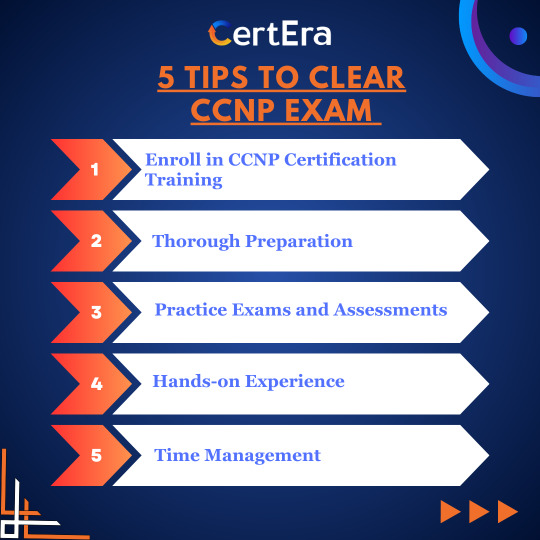
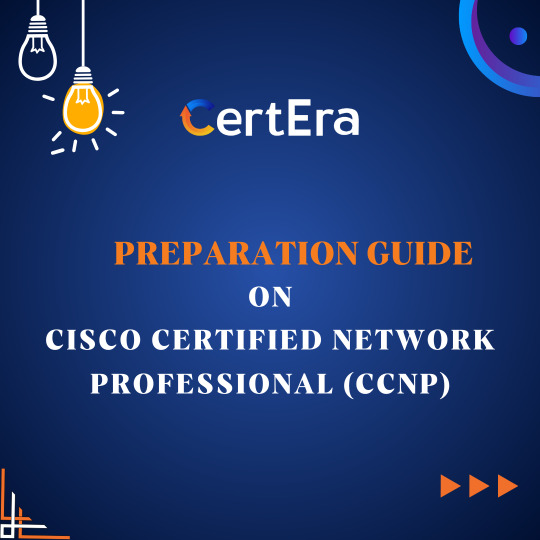

Prepare for success with our all-inclusive CCNP certification preparation guide. Achieve exam success and progress in your networking career!"
For more information visit www.certera.co
#CCNP#CiscoCertification#Networking#ITTraining#CareerDevelopment#ProfessionalDevelopment#CertificationPrep#Cisco#TechSkills#ITJobs#NetworkingCertification#CCNPExam#StudyGuide#CertificationGoals#CareerAdvancement#TechCertification#ITCareer#CCNPPreparation#ExamPrep#NetworkingSkills
0 notes
Text
17 March
LWF has published a Study Guide to equip participants at the Thirteenth Assembly and Pre-Assemblies with material for reflection on the assembly theme “One Body, One Spirit, One Hope.”
0 notes
Photo

The teacher lied🤨 #school #relatable #schoolmemes #test #studyguide #animememes #animememe #animememes4you #animememesfunny #animememesdaily #ᴀɴɪᴍᴇᴍᴇᴍᴇs #animememes4u #animeblerds #animeblerd #animeblerd4life #blerds #blerdslit #blerdlife #blerdiverse #blerd #blerdcon #blerdcommunity #blerdshit #blerdsunite #blerdnation #blerdgang #blerdsstaylit https://www.instagram.com/p/Cm1xGoGL75W/?igshid=NGJjMDIxMWI=
#school#relatable#schoolmemes#test#studyguide#animememes#animememe#animememes4you#animememesfunny#animememesdaily#ᴀɴɪᴍᴇᴍᴇᴍᴇs#animememes4u#animeblerds#animeblerd#animeblerd4life#blerds#blerdslit#blerdlife#blerdiverse#blerd#blerdcon#blerdcommunity#blerdshit#blerdsunite#blerdnation#blerdgang#blerdsstaylit
0 notes
Text
Our Dissertation Sample works help for academic and university studies who studying all over the world universities to achieve their goals. Check out our Helpful Study Guide.
#sampleworks#tutorsindia#oursampleworks#dissertationsampleworks#dissertationexample#assignmentwritingsampleworks#studyguide#dissertationtopicideas#dissertationwritinghelp
0 notes